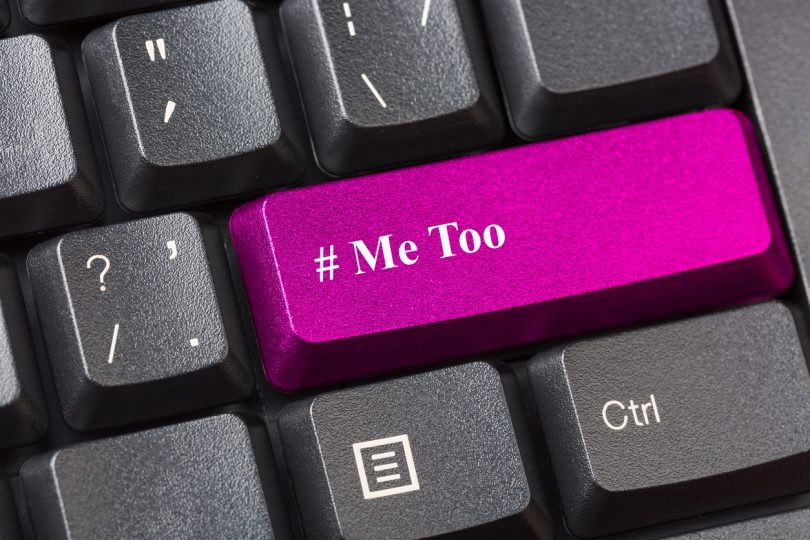
Last Wednesday, the Australian Human Rights Commission released the results of an extensive survey, showing that sexual harassment remains a prevalent issue in today’s workplaces.
The 2018 survey, which includes sexual harassment towards men and women, found that sexual harassment at work had increased significantly since previous surveys in 2003 and 2012.
Speaking at the National Press Club, Sex Discrimination Commissioner Kate Jenkins said, “One in three workers in Australia said that they had been sexually harassed at work over the last five years, compared with one in five from our 2012 survey and one in ten in 2003.
“We found that 39 per cent of Australian women and 26 per cent of Australian men told us they have been sexually harassed at work in the past five years, both a significant increase on 2012.”
The survey found that young people aged 18-29 were the most likely to be sexually harassed at work.
It’s the first survey of its kind by the Human Rights Commission, which provided data on the worst offending industries.
The top six included:
- Information, media and telecommunications
- Arts and Recreation Services
- Electricity, gas, water and waste services
- Retail trade
- Mining
- Financial and insurance services
Commissioner Jenkins said the results also revealed that formal reporting of workplace sexual harassment continues to be low, with only 17 per cent of people making a report or complaint.
“We know from our research that many people are afraid to report their experiences of unwelcome sexual conduct out of fear that they won’t be believed, that it’s not worth it, that they’ll be ostracised and that it could damage their career.
“It’s also worrying that almost half of those who did make a formal report said that nothing changed at their organisation, as a result of the complaint.”
John Wilson, Managing Legal Director for BAL Lawyers, says that people who have been sexually harassed often do fail to report it, or allow significant time to lapse before speaking out.
“People who have been sexually harassed often feel ashamed or embarrassed, and believe that if they let enough time pass it will just go away. But this isn’t always the case, and for the person who was sexually harassed, it can be an ongoing cause of stress and emotional pain.”
In terms of what constitutes sexual harassment, John says it can be anything from unwelcome text messages to openly crude language or behaviour.
“The legislation defines sexual harassment as any unwanted or unwelcome sexual behaviour that would make a reasonable person feel offended, intimidated or humiliated. It’s a pretty broad concept, but the essence is in the words unwanted or unwelcome.”
If you have been sexually harassed at work, John says that it’s important to keep in mind:
- Sexual harassment is not just unethical, it’s illegal – both under local and federal legislation.
- Even if it occurs outside of work hours, it can still be deemed workplace sexual harassment if there is a connection to work.
- As a first step in making a complaint, you should read your company’s mandatory Bullying and Harassment Policy and follow its procedures.
- You may also make a complaint to the Australian Human Rights Commission, or the ACT Human Rights Commission.
- You should make a complaint within 12 months of the most recent incidence.
- You cannot be persecuted for making a complaint – that is also illegal.
Complaints of sexual harassment are usually mediated by the Commission and occur between the employer and employee. Although the perpetrator of the harassment is at fault, employers are generally responsible for the actions of their employees and need to prove that they have made all reasonable attempts to prevent sexual harassment in their workplace.
“It’s often not enough to simply promulgate a sexual harassment policy. Avoiding sexual harassment in the workplace requires you to be active and vigilant about training and monitoring staff, with a proper complaint system in place to support those who may have experienced it.
“This is why some organisations monitor employee behaviour outside of work – because they can be held responsible for employee actions, no matter what time of day they occur.”
John says that mediation with the employer before the Commission may result in a financial settlement, with no need to take the matter to hearing by ACAT (ACT Civil and Administrative Tribunal) or the Federal Court. The employee who perpetrated the action may be subject to counselling or immediate termination, depending on the organisation’s policies and the extent of the harassment.
“You will only need to engage a lawyer in three scenarios. First, if you are getting nowhere having made a complaint to your employer. Second, if the harassment was particularly heinous and you would like to take the matter straight to the relevant tribunal. Or third, you want a third party to speak to your employer on your behalf.
“Otherwise, the Australian Human Rights Commission and the ACT Human Rights Commission are excellent sources of guidance on matters of bullying and harassment in the workplace, and can certainly help you determine how best to take a stand against sexual harassment in your workplace.”
If you do wish to seek legal advice on sexual harassment in the workplace, you can call BAL Lawyers on 02 6274 0999.
Original Article published by Rachel Ziv on the RiotACT.

What's Your Opinion?